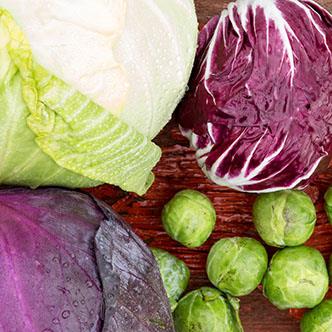
Consuming three or more daily servings of vegetables—especially cruciferous vegetables like broccoli and cabbage—helps prevent dangerous plaque build-up in the heart’s arteries, based on a large study of older Australian women.
Published in the Journal of the American Heart Association, this study looked at the association between vegetable consumption and plaque build-up in the heart’s arteries. The goal was to estimate the benefits of vegetable consumption and to see whether specific types of vegetables were more protective than others.
The study included 968 women 70 years and older, who were participating in a five-year study about daily calcium supplements. At the start of the study, women completed questionnaires about their diet, which specifically asked about vegetable consumption.
Three years later, participants underwent imaging to measure plaque build-up in the arteries.
Plaque build-up, even in healthy adults, can be a warning sign for heart disease. Overall, the more plaque an individual has in their arteries, the greater their risk for heart events like heart attack and stroke.
After analysis, researchers found that women consuming at least three servings of vegetables a day had 5% less plaque build-up than women consuming less than two servings a day.
However, certain types of vegetables appeared to have a stronger impact on heart health than others.
Researchers found that cruciferous vegetables accounted for much of the protective effect on the heart’s arteries. In fact, the more cruciferous vegetables participants consumed, the healthier their arteries were.
Cruciferous vegetables include foods like cabbage, brussels sprouts, cauliflower and broccoli, which are rich in nutrients and have been linked to better health. These foods proved to have a stronger effect on heart health than other types of vegetables such as legumes (peas and beans), onions, tomatoes, carrots, and leafy greens like lettuce, celery and spinach.
The take-home message, according to authors, is the importance of a healthy diet that is rich in vegetables. In this study, consuming at least three servings a day of vegetables was associated with healthier arteries. Therefore, increasing consumption of any vegetable—regardless of the type—is beneficial for health. However, increasing consumption of cruciferous vegetables like broccoli and cabbage may be most beneficial for reducing cardiovascular risk and improving heart health.